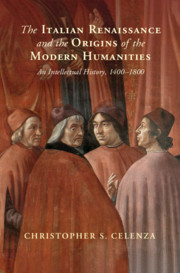Book contents
- The Italian Renaissance and the Origins of the Modern Humanities
- The Italian Renaissance and the Origins of the Modern Humanities
- Copyright page
- Dedication
- Contents
- Figures
- Preface and Acknowledgments
- 1 Philology, the Italian Renaissance, and Authorship
- 2 Lorenzo Valla, Philology, Emotion
- 3 Losing Your Identity: Angelo Decembrio
- 4 Trust and Authenticity
- 5 Pursuing a Love of Knowledge
- 6 Shaping Knowledge
- 7 Forgetting Philology: René Descartes
- 8 Certainty. Skepticism
- 9 Echoes
- Bibliography
- Index
4 - Trust and Authenticity
Published online by Cambridge University Press: 09 November 2021
- The Italian Renaissance and the Origins of the Modern Humanities
- The Italian Renaissance and the Origins of the Modern Humanities
- Copyright page
- Dedication
- Contents
- Figures
- Preface and Acknowledgments
- 1 Philology, the Italian Renaissance, and Authorship
- 2 Lorenzo Valla, Philology, Emotion
- 3 Losing Your Identity: Angelo Decembrio
- 4 Trust and Authenticity
- 5 Pursuing a Love of Knowledge
- 6 Shaping Knowledge
- 7 Forgetting Philology: René Descartes
- 8 Certainty. Skepticism
- 9 Echoes
- Bibliography
- Index
Summary
In an era with no established copyright law, very limited printing with type, and surrounded by handwritten volumes, how did one determine if a written work was authentic or a forgery? How did one talk about books? This chapter answers these questions by highlighting two thinkers, Angelo Decembrio and Angelo Poliziano. Decembrio wrote a dialogue, On Literary Polish. In it, his interlocutors discuss how to stock a library. As part of that conversation, the question arises of how to tell if a book is forged. Modern readers gain an unparalleled look into how Renaissance thinkers discussed manuscripts, what value they placed on tradition, and how correct judgments about literary authenticity often lived right next to those we now deem incorrect. Poliziano came to maturity at a time when most of what we now possess of ancient Greco-Roman literature had come to light. Confronting this mountain of newly available texts and with trial and error, he developed techniques that have become part of modern ways of editing and reading texts. Elsewhere he gives us testimony of how the vocabulary surrounding books developed, even as he stands as a signal figure in the history of philology.
Keywords
- Type
- Chapter
- Information
- The Italian Renaissance and the Origins of the Modern HumanitiesAn Intellectual History, 1400–1800, pp. 78 - 107Publisher: Cambridge University PressPrint publication year: 2021

